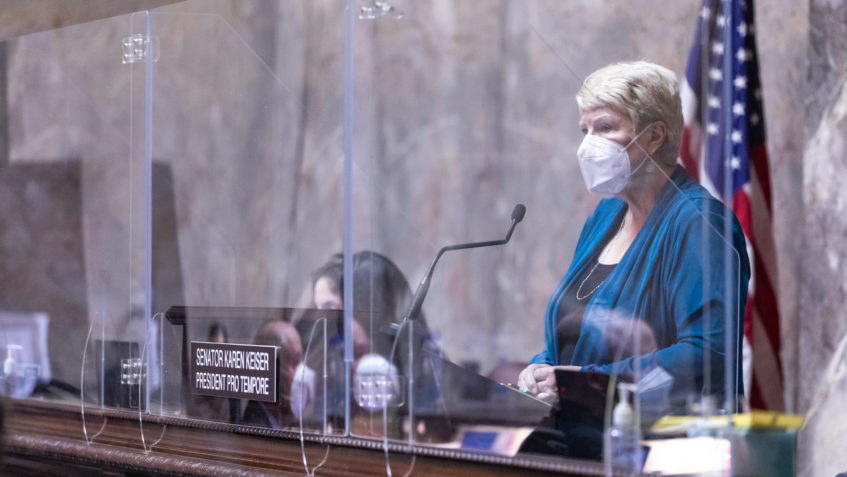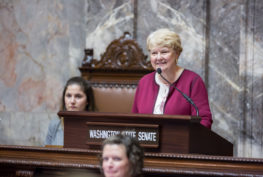OLYMPIA — Washington workers and businesses would see significant cuts to payroll taxes under one of the biggest tax relief bills of the year, filed today by Sen. Karen Keiser (D-Des Moines).
“We have to respond to the continued economic strains on family budgets and business bottom lines around our state,” said Keiser, chair of the Senate Labor, Commerce & Tribal Affairs Committee. “This bill represents a major step toward an equitable economic recovery.”
SB 5873 would cut premiums that workers pay to the Paid Family and Medical Leave (PFML) program back to last year’s level. It would also cut unemployment insurance (UI) premiums for all employers in the state this year. In 2023 it would target additional relief to small businesses—the 61% of Washington employers who have 10 or fewer employees.
Both UI and PFML premiums have increased due to surging demand during the pandemic.
In 2021, the Legislature put $2.2 billion in UI tax cuts back into the pockets of Washington’s employers through SB 5061 and SB 5478, both sponsored by Keiser. Those bills provided significant relief while also rebuilding Washington state’s UI trust fund, one of the strongest in the nation.
Due to strong trust fund growth, no state general funds need be used for this year’s UI tax relief.
“It’s imperative that the Legislature act quickly so that we can cut unemployment insurance premiums before they are due at the end of April,” said Keiser.
Unlike UI premiums, PFML premiums are paid jointly by employers and employees. While the employer portion remained roughly flat this year, the employee portion nearly doubled, going from 0.253% of pre-tax wages to 0.44%.
SB 5873 would lower the employee tax to its 2021 rate with a one-time infusion of $380 million in state funds.
The PFML program began paying benefits in January 2020, shortly before COVID-19 hit the state, and saw unexpectedly high demand during the pandemic.
“From the perspective of our state’s residents, the Paid Family and Medical Leave couldn’t have started up at a better time,” said Keiser. “It has been there throughout this awful pandemic, providing relief to countless families. But from an accounting perspective, it was a challenging time for a new program.
“This legislation is going to make a difference to workers and businesses across the state and put our economy in a better position to weather this uneven and drawn-out recovery.”




